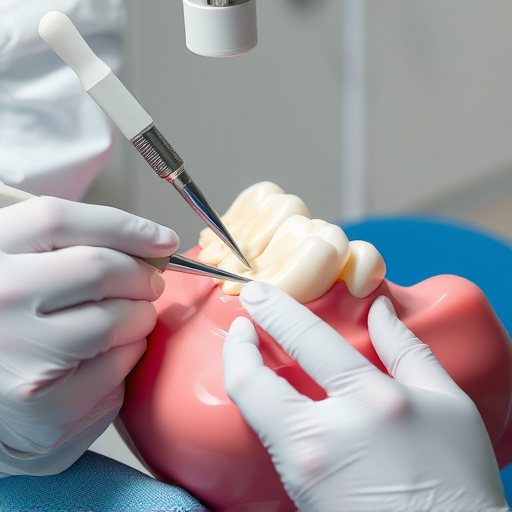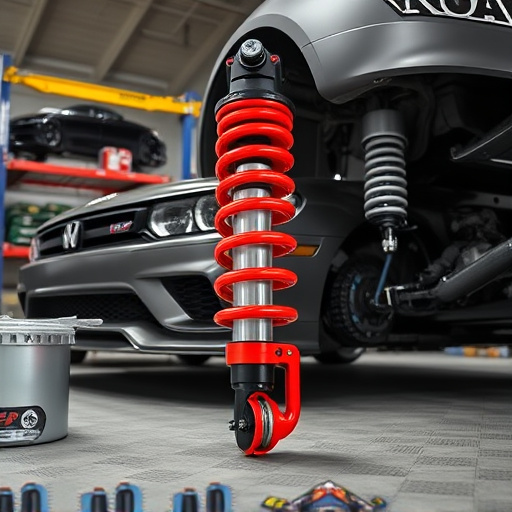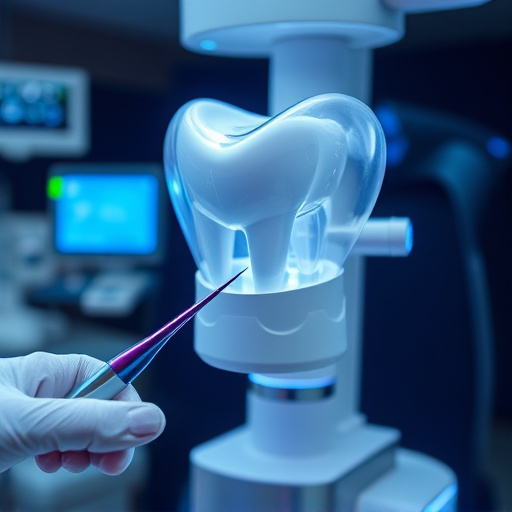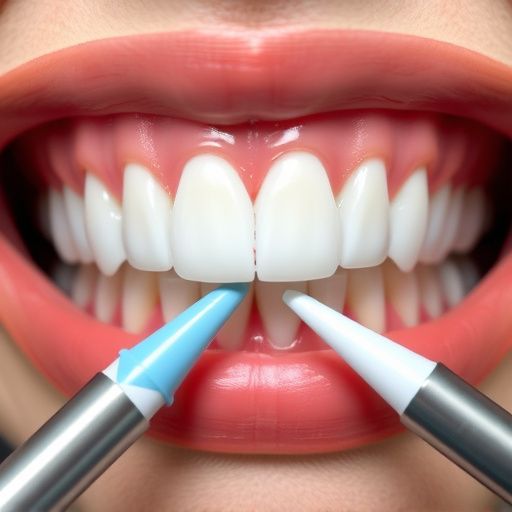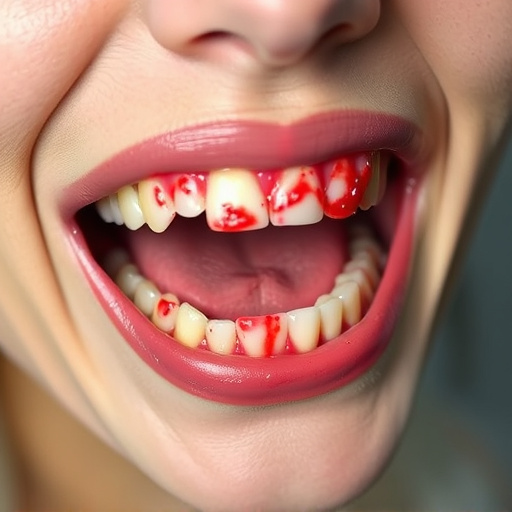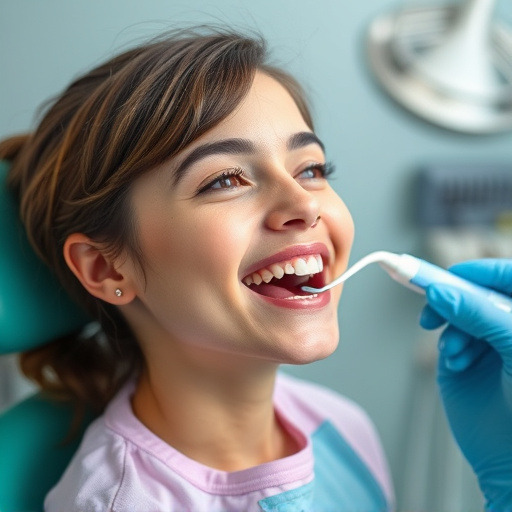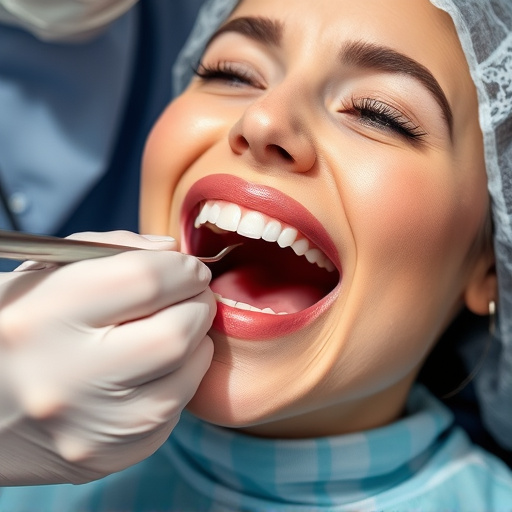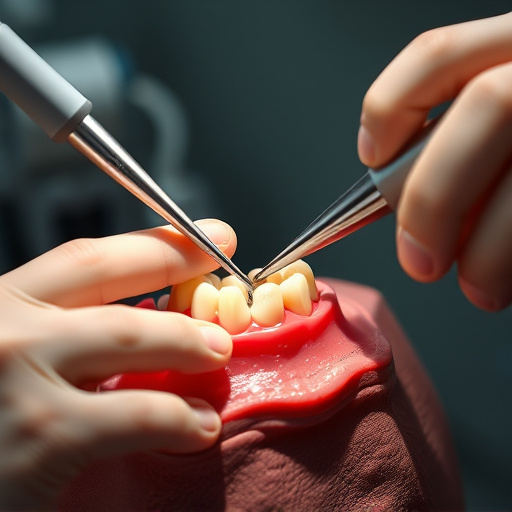Urgent dental care is crucial for addressing unexpected severe oral health issues like toothaches, abscesses, injuries (e.g., chipped or knocked-out teeth), and infections that require immediate attention to prevent acute discomfort, complications, and systemic inflammation. This type of care focuses on emergency evaluation and treatment, including procedures like root canals and extractions, to stabilize patients while more comprehensive solutions are developed. Recognizing signs such as intense pain, swelling, bleeding, or a broken tooth is vital for timely intervention.
Urgent dental care is a critical aspect of oral health that differs significantly from routine visits. When faced with toothaches, broken teeth, or severe bleeding, immediate attention is paramount. This article explores defining urgent dental issues and common reasons for these visits. We delve into the stark contrast between emergency care and routine check-ups, highlighting specialized services offered during urgent situations. Additionally, we discuss key considerations ensuring effective urgent dental care, emphasizing quick response times, advanced equipment, and patient comfort strategies.
- Understanding Urgent Dental Care Needs
- – Defining urgent dental issues
- – Common reasons for urgent visits
Understanding Urgent Dental Care Needs
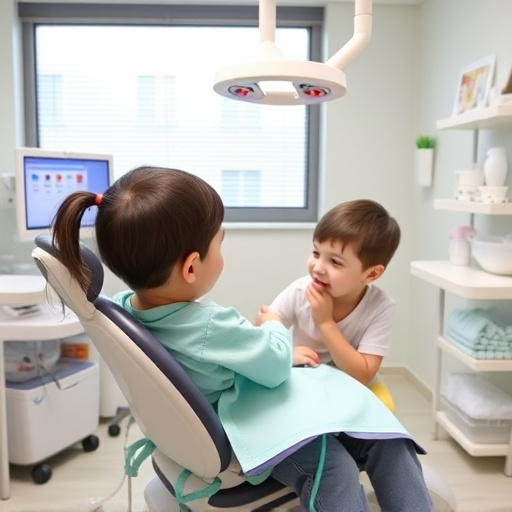
Urgent dental care is designed to address immediate and often unexpected dental issues that require prompt attention. These situations can range from severe toothaches and abscesses to accidental injuries or trauma, such as chipped or knocked-out teeth. Recognizing the signs of an urgent dental need is crucial for timely intervention.
Common urgent dental care scenarios may include intense pain, swelling, bleeding, or a broken tooth. For instance, a sudden, sharp pain in a specific tooth, often accompanied by sensitivity to heat or cold, might indicate an infected nerve or abscess that demands prompt evaluation and treatment. Unlike routine visits focused on preventive measures like regular teeth cleaning or cosmetic fillings, urgent dental care is about mitigating acute discomfort and preventing further complications, including potentially life-threatening conditions like septicemia from unchecked infections.
– Defining urgent dental issues

Urgent dental issues are those that require immediate attention due to their severity or potential impact on a patient’s overall health. These situations often involve acute pain, infection, trauma, or conditions that can lead to rapid deterioration of oral and systemic well-being. Examples include tooth abscesses, which can cause intense pain and potential system-wide inflammation; avulsed (knocked-out) teeth, where quick re-implantation is crucial for long-term viability; or severe mouth infections that might signal a broader health issue.
Distinguishing these cases from routine dental visits is essential as they demand prompt action and specialized care. Emergency dental care focuses on treating such crises, often involving procedures like root canals, extractions, or temporary restorations to stabilize the patient’s oral health until a more comprehensive solution can be implemented. Unlike regular check-ups or cosmetic dentistry treatments, urgent care aims to mitigate immediate risks and alleviate severe discomfort, ensuring patients’ comfort and overall health are prioritized.
– Common reasons for urgent visits
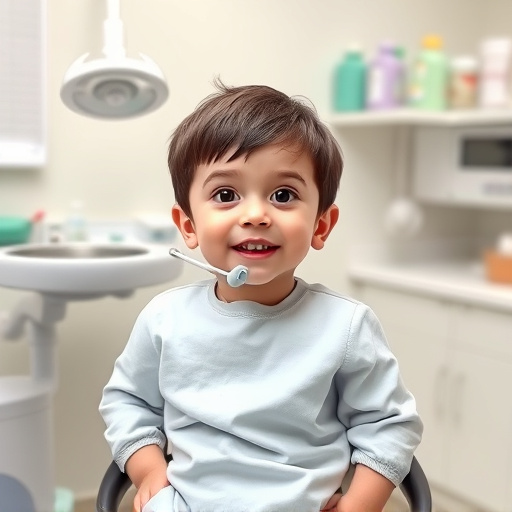
Urgent dental care is often required due to unforeseen circumstances that can’t wait for a routine appointment. Common reasons for urgent visits include severe toothaches, oral injuries, and tooth infections. These conditions require immediate attention to prevent further complications, such as abscesses or even loss of teeth. In the event of a broken or chipped tooth, patients might seek urgent dental care to stabilize the area and reduce pain before scheduling a more detailed procedure like a dental crown restoration.
Another reason for urgency is when patients experience sudden, severe bleeding in the mouth, which could be indicative of gum disease, an injury, or another oral health issue needing prompt assessment and treatment. Moreover, individuals with chronic conditions like diabetes or weakened immune systems may require urgent care due to increased susceptibility to dental infections, potentially necessitating procedures such as dental implants for tooth replacement.
Urgent dental care plays a crucial role in addressing unexpected dental emergencies, offering immediate relief and preventing further complications. Unlike routine visits, urgent care focuses on swift treatment for issues like toothaches, broken teeth, or oral injuries. By understanding the distinct needs of urgent dental care, patients can navigate these situations more effectively, ensuring prompt attention and better overall oral health.


